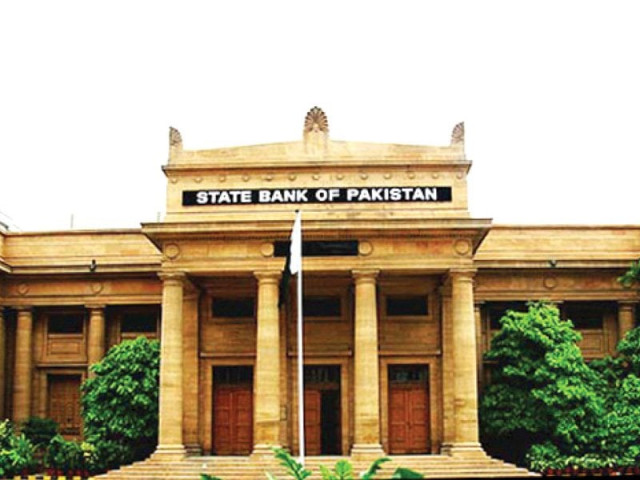No compulsion: Govt lethargy hindering effective monetary measures
Delay in calling meeting of supervisory committee stalls much needed policy action.

The delay constrains the central bank from sharing its assessment of the impact of economic policies on monetary aggregates with policy makers. PHOTO: FILE
The economic picture painted by international funding agencies categorically points to the fact that the country’s fiscal and monetary policies leave much to be desired. The government, meanwhile, is acting as if it is impervious to deepening economic crises: it seems to be deliberately delaying a meeting of a macroeconomic supervisory panel in violation of the law.
Unwarranted delays in summoning a meeting of the Monetary and Fiscal Policies Coordination Board (MFPCB) is postponing policy actions required to check inflation, which is expected to rebound soon; review the exchange rate policy; and to take appropriate measures for the revival of the sinking economy, sources told The Express Tribune.
The State Bank of Pakistan (SBP) Act, 1956, makes it binding on the finance ministry to call a meeting of the coordination board on a quarterly basis. The meeting is aimed at reviewing the consistency of macroeconomic policies and to revise limits and targets set at the time of formulation of the budget. The conference is already overdue by four months. The most recent board meeting was held in May last year, and the next meeting was due in September.
The MFPC Board is chaired by the finance minister, with the ministers for commerce, the deputy chairman of the planning commission, the SBP governor and the finance secretary as its members. Through an amendment to the 1956 Act, two eminent macro or monetary economists also have to be included in this five-member committee. The MFPCB meeting provides an opportunity for economic managers to review latest developments in the economy and take required policy measures.

The urgency to call the MFPCB meeting has intensified after the International Monetary Fund (IMF) expressed its dissatisfaction with the country’s macroeconomic policies. The IMF said last week that the monetary easing policy needs to be reviewed, as inflation is expected to return to the double digits by the second half of the current fiscal year. It had further advised the government to reverse expansionary fiscal policies and suggested that the rupee is overvalued by 5-10%.
Some officials complain that the finance ministry’s diktats have made monetary policies subservient to fiscal policies to the detriment of the economic health of the country.
Growth targets, inflation, the budget deficit, monetary policies and external accounts have become seemingly irrelevant due to the alarming expansionary fiscal policies practiced by the federal government, sources said. The IMF has said the budget deficit will clock in over 7% of the GDP, or Rs1.624 trillion, this year, as against the finance ministry’s more optimistic estimates of Rs1.2 trillion or 4.7% of the GDP.
The SBP Act also makes its mandatory for the central bank to place all relevant data in front of the coordination board. The delay is, therefore, constraining the central bank from sharing its assessment of the impact of the government’s economic policies on monetary aggregates. The Act also binds the Ministry of Commerce to notify the MFPCB of the impact of the monetary policy on imports and exports.
The government’s chequered history, however, offers little hope. The incumbent government had convened the first meeting of the coordination board in its tenure in May 2011, after a lapse of four years. The delay in convening the meeting had made SBP’s monetary tightening policy largely redundant, as the finance ministry’s expansionary fiscal policy blunted its impact. With the monetary policy neutralised, the government had been unable to restrain inflation to single digits.
The spokesperson for the finance ministry was not available for comments, despite repeated attempts. SBP spokesman Syed Wasimuddin refused to comment, suggesting that questions regarding the delay in the meeting and its adverse implications should be answered by the finance ministry.
Published in The Express Tribune, January 22nd, 2013.
Like Business on Facebook to stay informed and join in the conversation.



















COMMENTS
Comments are moderated and generally will be posted if they are on-topic and not abusive.
For more information, please see our Comments FAQ